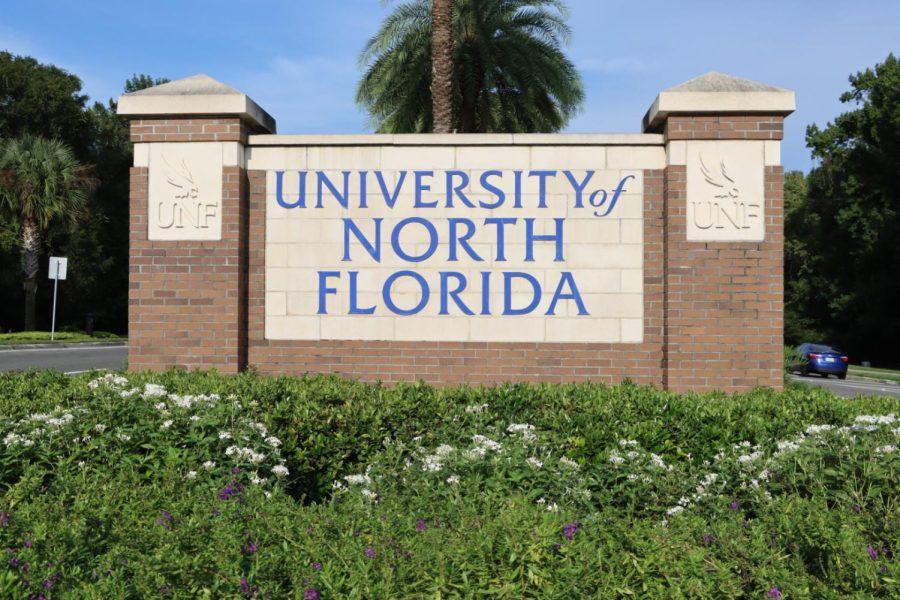The UNF Board of Trustees heard from UNF President David Szymanski on his first 90 days and the direction of the University. The board also heard from Student Body President Jenna DuPilka and voted on various measures during a long and busy day.
Student Body President Jenna DuPilka presented the results of the special Osprey Voice to the Academic and Student Affairs Committee. The committee members listened intently to her presentation. After she finished, two of the trustees asked questions. First, trustee Hans Tanzler asked if certain events, like tailgates or Oktoberfest, might be approved to sell alcohol. DuPilka clarified that the policy specifically states that no alcohol is allowed in parking lots and no alcohol is allowed at any student events.
Next, trustee Annie Eagan asked, “why do you think only 14.8% of the student body responded?” DuPilka explained that UNF is a commuter school which makes it difficult to gather a large sample of the population. To her point, 14.8 percent is pretty high for UNF. The Student Campus Life Survey is sent to all UNF students each year and last year, only 930 students, or 5 percent, responded. Even the Student Government Spring election only had 1,649 votes counted.
The committee also heard public remarks from students who felt compelled to speak out against the ban.
“Students have not stopped drinking. They are just drinking off campus where they are at times unsafe, unmonitored and unprotected from medical amnesty like they are on campus.” John Aloszka, SG Chief of Staff, said. “I know we want to live in a world where students don’t come in contact with things like alcohol, but that is not real life. College should prepare us for real life.”
Student Body Vice President Maria Bermudez also offered her thoughts to the committee and referenced a Harvard study.
“Student events containing alcohol such as concerts, Oktoberfest and graduations are the best avenue to impart positive drinking to college students. By eliminating the exemplification of safe drinking, many students are only exposed to drinking in situation like bars, nightclubs and fraternity parties, all of which are all associated with binge drinking,” Bermudez said. “I ask that the University take this opportunity to address serious social issues such as binge drinking, alcohol abuse and sexual assault through carefully developed policy, regulation and educational efforts.”
The committee also heard from interim-Provost Pamela Chally. She presented the committee with a number of reports, including the reorganization of the International and Student Affairs department which is now reporting under the Academic Affairs department. As well as updates to the counseling center, which should offer students more timely help.
The committee also heard from Rachel Winter, the University Conduct Officer, who shared the potential changes to the University Student Code of Conduct. These changes were researched and discussed for over two years prior to this vote. Some of the changes are updates to language but more substantive changes were also made. The updated code was approved unanimously.
Szymanski presented his State of the University. According to Szymanski, his decisions to eliminate Papa John’s and the Confucius Institute from campus, ban alcohol from student events, approve the Faculty Association’s anti-bullying policy and requiring that employees report Title IX violations are in the spirit of integrity, respect and safety.
“Student well-being is what we’re all about,” Szymanski began as he detailed the direction he plans to take the University.
A beautiful campus, a strong community reputation and sound financials were the positives that he inherited when he took over as University President in June. He also discussed trimming down the size of the University by eliminating three Vice-President positions.
“We are lean now, but we are well poised with the people we have now,” Szymanski said. “These are people you want to go to battle with.”
Vice Presidents of Human Resources, International and Student Affairs and the President’s Chief of Staff, were not retained for the 2017 – 2018 school year. According to Szymanski, the net savings of these reductions is $750,000. This cost cutting is part of an effort to affect ‘the metrics,” which are arguably Szymanki’s biggest problem.
The State University System of Florida’s ‘Performance Based Funding Model’ or ‘the metrics’ was approved by the Board of Governors in 2014. There are a total of 10 metrics that “evaluate Florida institutions on a range of issues” such as bachelor graduates making more than $25k, the median wages of bachelor graduates employed full-time a year after graduation, the net tuition & fees per 120 hours and the four-year graduation rates, to name a few.
The Board of Governors has created a point system where each university can earn up to ten points per metric based on their performance. Each university contributes a portion of their institutional budget, which is allocated by the Florida State Legislature, into a pot that is then divided among the top eight schools. The bottom three schools and any school who doesn’t get at least 50 points doesn’t get any of the institutional funds that they contributed back. Last year, UNF came in dead last and received no performance funding. Arguments that certain metrics are biased towards larger universities have been made since the metrics were established.
“We will win at the metrics,” Szymanski said. “We will be a 10 on each metric. We will be Uniquely UNF”
The board’s Governance committee also ratified the recently completed collective bargaining agreement, which approved raises for UNF faculty.
—
For more information or news tips, or if you see an error in this story or have any compliments or concerns, contact editor@unfspinnaker.com.















